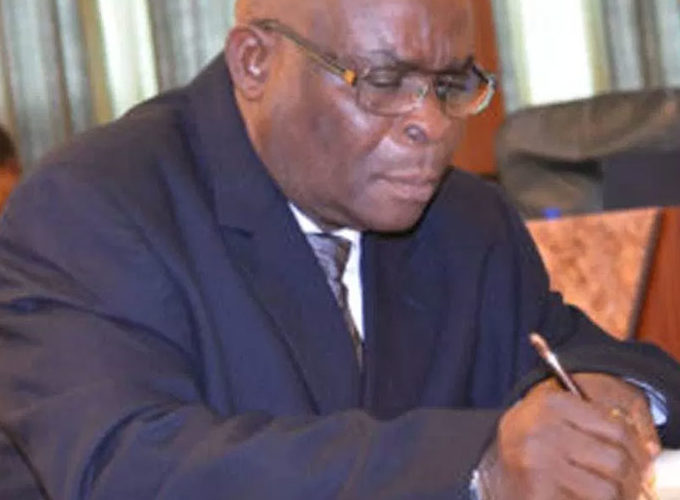Former Chief Justice of Nigeria, CJN, Justice Walter Onnoghen, has appealed his conviction by the Code of Conduct Tribunal, CCT, asking among others for an order discharging and acquitting him.
In the Notice of Appeal filed by his lawyers led by Adegboyega Awomolo SAN, on Thursday and made available to the Next Edition, the embattled CJN relied on 16 grounds to fault the judgment of the tribunal.
The CCT on Thursday convicted Onnoghen on all six count charge of false assets declaration preferred against him by the federal government and ordered that he be removed from office, stripped of all offices previously held and barred from holding public office in the next 10 years.
It also ordered that the former CJN should forfeit to the federal government all funds in five bank accounts which he failed to declare.
Some of the grounds of appeal set out in the Notice of Appeal include that:
The lower tribunal erred in law when it dismissed the Appellant’s application challenging its jurisdiction and thus occasioned a grave miscarriage of justice.
The lower tribunal erred in law when it dismissed the Appellant’s Application seeking the chairman to recuse himself from further proceedings on the ground of real likelihood of bias and thus occasioned a miscarriage of justice.
READ ALSO: Labour Commends Buhari for Signing Minimum Wage Bill
The lower tribunal erred in law when it refused to recuse itself from the proceedings in view of the open declaration by the chairman of the tribunal that he is only accountable to the president who appointed him and nobody because he is not a judicial officer and thus occasioned a grave miscarriage of justice.
The lower tribunal erred in law and acted without jurisdiction when it ordered that the Assets of the Appellant be confiscated and thus occasioned a miscarriage of justice.
The Honourable Tribunal erred in law when it tried and convicted the Defendant/Appellant for failure to declare and submit assets declaration Forms, between 2005 and 2016, which alleged offence is unknown to law; and in total violation of Section 36 (12) of the 1999 Constitution.
The Honourable Tribunal erred in law when it placed on the defendant the burden of proving his innocence in violation of Section 36 (5) of the 1999 Constitution, and Section 135 (1) of Evidence Act 2011.
The appellant is therefore seeking the following reliefs from the appellate court: an order that the lower tribunal lacks the jurisdiction to entertain the case, an order that the lower tribunal ought to have recused itself from the proceedings before it and an order that the charge has become academic.
He is also seeking an order setting aside his conviction, an order setting aside the order for forfeiture of assets made by the Honourable Tribunal as well as an order discharging and acquitting him.
The appeal has the Federal Republic of Nigeria as the sole respondent.











